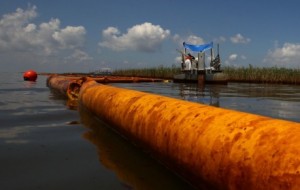BP and Our Oil Problem

Granted oil is a necessary evil, but how long will we continue the current path? It’s like a drug. We can’t quit but it is killing us a little more every day. We have to find a way out, and soon. It is a complex problem with many entrenched and vested interests that will resist any change away from oil.
If we look at this problem as individuals, or from the isolated view of our nation, then the problems surrounding oil will not be solved. This is a global issue. As with any significant issue, the first step is to address the need to change. Globally, we are ready to do that yet. It will take more tragedies like the Exxon Valdez, the Gulf oil spill, and other catastrophes before we hit bottom and acknowledge we are “oil alcoholics.” Only after the collective pain becomes great enough, will we make the tough choices that will be global in nature and significant enough to make a difference. We can solve this. Here’s how.
First, we have to acknowledge the facts around the situation.
- Oil is finite – we will run out – the question is when
- Oil is vital to all parts of the global economy – we need it to feed ourselves and provide basic necessities
- Oil is dirty when we take it out and when we use it – we are soiling our nest
- Oil alternatives are not viable today – the economics and practicalities do not work
What then is the answer? We basically have two options. First, we could begin to limit production. There are several ways to do this, either via price, or by destroying production sources, which would in turn drive up prices. If prices could be made high on a global basis, then oil users around the world would have more incentive to curtail oil consumption and find alternative sources. In addition, this would up the ante developing alternatives to oil.
Reducing demand through global agreement will not work. There is too much incentive to cheat individually. Governments, countries, and corporations would find a way around any agreements that had been reached. The only real way then, is to consolidate the supply of oil under a central authority. This could be done by force, which would mean actually taking and defending the oil fields and oil producing properties, or it could be done by purchasing and controlling the right to produce oil. Either proposition would be costly.
Another option to reduce demand is to destroy oil-producing facilities. While this may seem outrageous in the face of increasing demand, it is one way to selectively reduce the supply. This would have the effect of not only raising oil prices, but also shifting wealth from countries who continue to consume oil, to those who still have oil supplies available for sale. When that happens, the United States would want to be one of the countries continuing to supply oil.
Assuming the supply of oil is not going to diminish anytime soon, the only other rational approach is to first Pareto the uses for oil and curtail those that don’t make sense. For example it doesn’t make any sense to use oil to generate electricity. Investments in nuclear power can do this far more effectively. Further, it makes no sense to use oil for gasoline at the rate we are currently using it. Gasoline should either be taxed at a higher rate, or legislated into reduced demand via fuel economy standards and other legislation.
Finally, the collective wealth of the world should be pooled together to form a prize similar to the Nobel prize to be given out to the individual or company that develops the most significant alternative to oil. Surely if we were to put a $20 billion bounty for the most viable solution, someone would arrive at the solution. And while the $20 billion would be the prize at the end, there should also be tax breaks and stipends to encourage investment for all those qualified researchers who are trying to find a solution.
Will all of these things be disruptive? Will they be costly? Absolutely. But examine the alternative. Who can say what will happen in the Gulf of Mexico given the recent disaster. Who knows what will happen as a result of all of the methane released, disbursents used, and oil that’s choking so much of the food chain. How long will it take to recover? The truth is nobody knows. Though one can imagine the entire Gulf Coast will not be the same for many many years to come. And where will the next one be?
It’s time to change.
